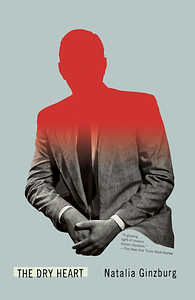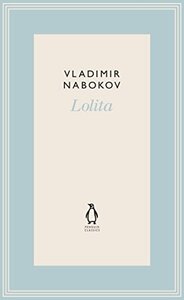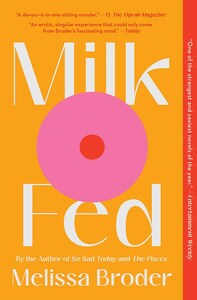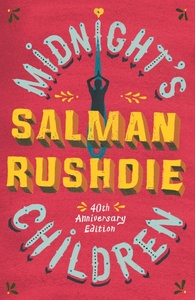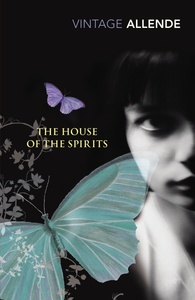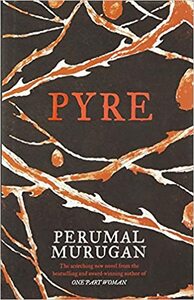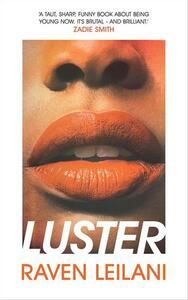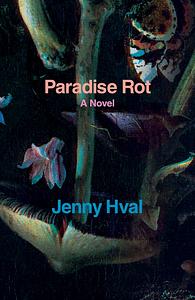Take a photo of a barcode or cover
notesofacrocodile's Reviews (257)
for some reason i see this one as a horror story; sure, it may not fit into the traditional view of what constitutes such a story, but there is this slimy unease that accentuates the relation between the protagonist and her husband, particularly in the way that said husband treats her. there is also a growing sense of situations and circumstances slowly souring and mutating into something horrifying that i couldn't help but see it as belonging to a sub-type of horror fiction.
the protagonist is a desperate woman, intoxicated by the attentions of a man (soon to be her husband) after having gone without it for twenty-six years (alas, the unfortunate thoughts that can only be attributed to a society that centers men), and apparently falls in love with him. i use the word 'apparently' here, because it becomes clear to the reader that her sentiments are more complex than one may think. love cannot be the right emotion to describe it as.
natalia ginzburg has a way with her words, she does not waste herself to flowery prose or grandiose statements- she writes her prose in such a way that we as the readers can feel the protagonist's emotions simmering beneath her skin. we can feel its intensity even as it is not always directly explained to us.
i admire writers who can pack so much within 100 pages; usually i feel as though a story's impact could have been more appropriate and up to the mark had the length been increased. but natalia ginzburg wraps up her story very neatly- you finish the last page and you feel the thunder of the silence right after it.
the protagonist is a desperate woman, intoxicated by the attentions of a man (soon to be her husband) after having gone without it for twenty-six years (alas, the unfortunate thoughts that can only be attributed to a society that centers men), and apparently falls in love with him. i use the word 'apparently' here, because it becomes clear to the reader that her sentiments are more complex than one may think. love cannot be the right emotion to describe it as.
natalia ginzburg has a way with her words, she does not waste herself to flowery prose or grandiose statements- she writes her prose in such a way that we as the readers can feel the protagonist's emotions simmering beneath her skin. we can feel its intensity even as it is not always directly explained to us.
i admire writers who can pack so much within 100 pages; usually i feel as though a story's impact could have been more appropriate and up to the mark had the length been increased. but natalia ginzburg wraps up her story very neatly- you finish the last page and you feel the thunder of the silence right after it.
// "she groped for words. i supplied them mentally ('he broke my heart. you merely broke my life')."
i feel like i still need to wait for everything to settle and collect my thoughts on this novel, but what i can say for sure is that it was rendered in the loveliest prose, a contrast to the horrifying and disgusting content it sought to convey; the crooked way that the pedophile protagonist uses his words to depict a story of tragic love, rather than a terrifying tale of grooming and sexual abuse. considering that nabokov himself was a victim of csa and had requested at the time of publication that his story not have any girls on the cover, it is sad to see that his request has been trampled over many times over the last few decades. most covers of this book attempt to portray some sexualised aspect of girlhood and that is very sad to see.
i feel like i still need to wait for everything to settle and collect my thoughts on this novel, but what i can say for sure is that it was rendered in the loveliest prose, a contrast to the horrifying and disgusting content it sought to convey; the crooked way that the pedophile protagonist uses his words to depict a story of tragic love, rather than a terrifying tale of grooming and sexual abuse. considering that nabokov himself was a victim of csa and had requested at the time of publication that his story not have any girls on the cover, it is sad to see that his request has been trampled over many times over the last few decades. most covers of this book attempt to portray some sexualised aspect of girlhood and that is very sad to see.
i liked the premise of this novel very much: a narrative that delves into hunger and dissatisfaction, of craving and desire, with a jewish sapphic woman at the center of it all who attempts to navigate through her eating disorder and is desperate for the approval of those around her, particularly her mother.
but after i was done, i thought it was just alright. rachel's mother, who is such an antagonistic figure in her life (being depicted as a primary influence of the onset of our protagonist's eating disorder), was barely fleshed out. she was a disproportionately monstrous woman who seemed to have no complexity or depth to her. of course, such a woman who is as villainous towards her daughter as she doesn't deserve to be redeemed (in my personal opinion) or even seen in a good light but as a character she did deserve more depth. similarly was my issue with how miriam, the protagonist's love interest who is also a fat woman, was portrayed. after the book was over i felt like i could visualise her perfectly because of how much she was physically described but i couldn't really firmly grasp on to a proper idea of who she was as a person, and i wish the book had explored her personality as well.
another missed opportunity and a questionable choice was the way that the topic of the palestinian ethnic cleansing was handled. the author, i presume from the book, does have some kind of sympathy for the palestinian cause but she lost such a golden opportunity for really discussing the issue. it would have been interesting to talk about the issue in better detail; the protagonist admits internally that she doesn't really know much about the crisis except from what she has gleaned from cursory glances, and so she is unable to really put up an argument about it in the book. she then proceeds to drop the thought, and in my opinion this was such a wasted chance. she could have spoken with a better outline of what was happening, nothing encyclopedic but still basic and coherent, like most people who are pro-palestine would know, because with the way the protagonist seemed to have scant information on the issue, it seems like being pro-palestine is a passing cause for such individuals who don't really know much about the issue and simply parrot a few statements they have heard around in progressive circles. further, there could have been a dive into jewish people who are anti-zionist, and how they unfairly and hurtfully get their religious identities questioned when they voice out support for palestine.
i wouldn't say this was a horrible book, not even a bad one. i can think of people who would love it, even. for me, however, some dissatisfactions with this book were too much to enjoy it as much as i wanted to.
but after i was done, i thought it was just alright. rachel's mother, who is such an antagonistic figure in her life (being depicted as a primary influence of the onset of our protagonist's eating disorder), was barely fleshed out. she was a disproportionately monstrous woman who seemed to have no complexity or depth to her. of course, such a woman who is as villainous towards her daughter as she doesn't deserve to be redeemed (in my personal opinion) or even seen in a good light but as a character she did deserve more depth. similarly was my issue with how miriam, the protagonist's love interest who is also a fat woman, was portrayed. after the book was over i felt like i could visualise her perfectly because of how much she was physically described but i couldn't really firmly grasp on to a proper idea of who she was as a person, and i wish the book had explored her personality as well.
another missed opportunity and a questionable choice was the way that the topic of the palestinian ethnic cleansing was handled. the author, i presume from the book, does have some kind of sympathy for the palestinian cause but she lost such a golden opportunity for really discussing the issue. it would have been interesting to talk about the issue in better detail; the protagonist admits internally that she doesn't really know much about the crisis except from what she has gleaned from cursory glances, and so she is unable to really put up an argument about it in the book. she then proceeds to drop the thought, and in my opinion this was such a wasted chance. she could have spoken with a better outline of what was happening, nothing encyclopedic but still basic and coherent, like most people who are pro-palestine would know, because with the way the protagonist seemed to have scant information on the issue, it seems like being pro-palestine is a passing cause for such individuals who don't really know much about the issue and simply parrot a few statements they have heard around in progressive circles. further, there could have been a dive into jewish people who are anti-zionist, and how they unfairly and hurtfully get their religious identities questioned when they voice out support for palestine.
i wouldn't say this was a horrible book, not even a bad one. i can think of people who would love it, even. for me, however, some dissatisfactions with this book were too much to enjoy it as much as i wanted to.
a short work that gives the facts and leads the readers through the complexities of the malabar rebellion of 1921. i'm glad that this book exists, as it gives the history and political nature of a region that is already so overlooked in mainstream indian history circles. add to that the nature of this uprising, and it is very rare for people to have even heard of it despite how powerful and symbolic this movement was. it is doubly important in the face of growing anti-muslim sentiments in the country today. would definitely recommend to those who are looking to expand their knowledge on indian history, particularly with regard to malabar, the northern portion of the south indian state of kerala.
i want to remove neil gaiman's brain, give it a gentle smooch and a daisy, and place it back in with a pat
holy fuck, i loved this.
an expansive generational saga that has its history and events primarily traced through three generations of women with captivating stories, all amidst a boiling political landscape. i felt so many emotions all in a rush, so much so that even now as i try to summon coherent thoughts to describe how i felt about this novel, it is all too chaotic to explain. isabel allende's writing is as raw and beautiful and haunting and touching as ever.
an expansive generational saga that has its history and events primarily traced through three generations of women with captivating stories, all amidst a boiling political landscape. i felt so many emotions all in a rush, so much so that even now as i try to summon coherent thoughts to describe how i felt about this novel, it is all too chaotic to explain. isabel allende's writing is as raw and beautiful and haunting and touching as ever.
// "people lived around here in all directions. there was nowhere she could seek help."
a novel about an intercaste marriage that progressively gets more awry by the page, all rendered in simple and lucid writing that complements perfectly with the complex politics of caste and gender. influenced to write the story by the unfortunately increasingly common occurrence of the real-life killing of a dalit man who had been in a relationship with an upper caste woman, perumal murugan has no qualms about depicting the brutalities of intercaste alliances in this harrowing story
a novel about an intercaste marriage that progressively gets more awry by the page, all rendered in simple and lucid writing that complements perfectly with the complex politics of caste and gender. influenced to write the story by the unfortunately increasingly common occurrence of the real-life killing of a dalit man who had been in a relationship with an upper caste woman, perumal murugan has no qualms about depicting the brutalities of intercaste alliances in this harrowing story
i thought the premise was promising enough to lead to a more captivating read than what was ended up offered. i don't know how to explain it, but in my opinion, something about the author's writing style is clashing with the kind of story she wants to tell. there were parts in the book when the two came together well, but for the most part, it wasn't. initially i had thought that the writing style was just not to my taste at all, but this was my conclusion, because i found that i did enjoy the writing in some nooks and crevices of the story.
it wasn't overly bad, but it wasn't overly good either. it had its moments but it also had its slips.
it wasn't overly bad, but it wasn't overly good either. it had its moments but it also had its slips.
this is my first time reading this author and why on earth were there so many descriptions of peeing
